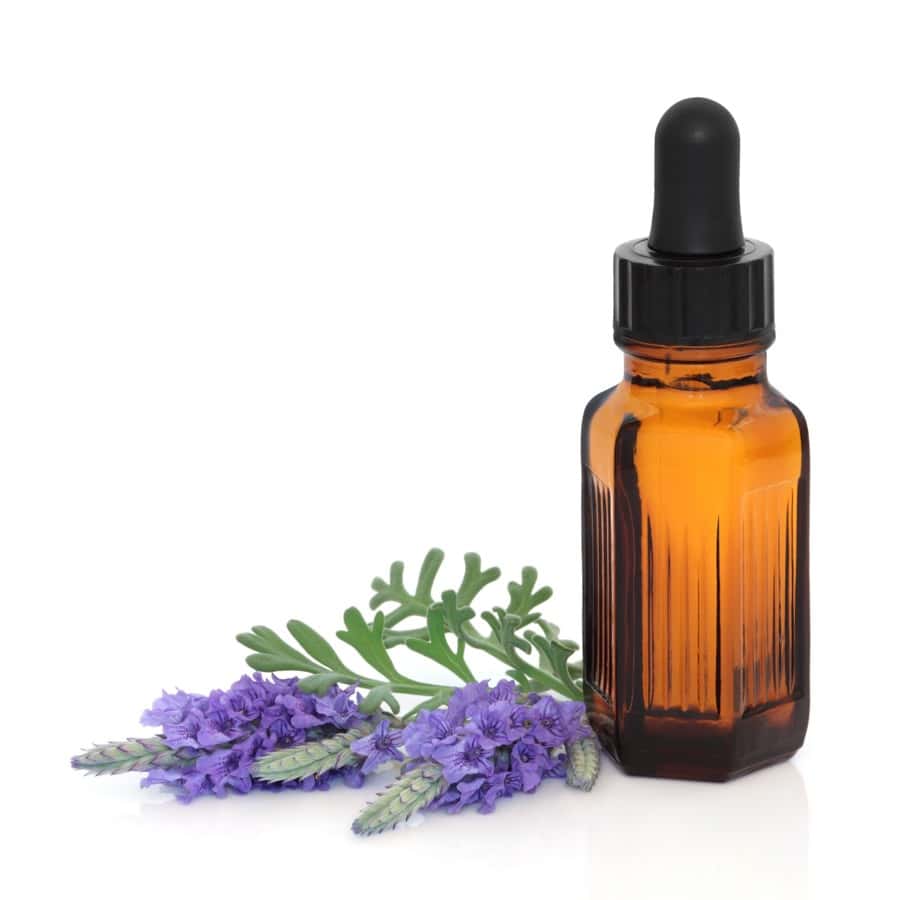
Lavender and tea tree oils are popular ingredients in body care products. But might they have some unintended consequences? A new study presented at the Endocrine Society Annual Meeting in Chicago on March 19, 2018, hints at some disturbing possibilities.
How Do Lavender and Tea Tree Oils Affect Hormones?
Case reports have suggested that young boys exposed to concentrations of compounds from these plants may develop enlarged breasts (see below). Consequently, the researchers investigated eight compounds common to both lavender and tea tree (Melaleuca alternifolia).
Eight Compounds Tested for Hormonal Effects:
- Eucalyptol
- 4-terpineol
- Dipentene/Limonene
- Alpha-terpineol
- Linalyl acetate
- Linalool
- Alpha-terpinene
- Gamma-terpinene
Each of these compounds promoted estrogen activity and inhibited androgen activity in the human breast cancer cells used for the test.
Lavender and tea tree are not the only plants that make these compounds. They are widely distributed in the plant world, suggesting that more research on benefits and risks is urgently needed.
This is not the first research to indicate that lavender and tea tree oils may block the action of male hormones (androgens). This line of research was stimulated by the case reports of young boys who developed noticeable breasts.
Does Lavender Make Little Boys Grow Breasts?
Q. You wrote some time ago that male breasts grew after contact with lavender (shampoo, soap, etc.) and urged caution. I have just read in Time magazine (April 4, 2016) that “in Germany, lavender tea has been approved as a treatment for insomnia.”
Given the first mentioned concern, could you comment on this?
Do Boys Grow Breasts When They Are Exposed to Lavender?
A. The story on lavender is complicated and controversial. Several years ago three case reports were published in The New England Journal of Medicine (Feb. 1, 2007) linking the use of lavender and tea tree oil skin products to breast development in young boys. The authors raised the possibility that these natural products might have had estrogenic activity.
Needless to say, a lot of people got excited about this hypothesis. A study conducted in female rats exposed to lavender oil concluded that it “gave no evidence of estrogenic activity” (International Journal of Toxicology, Mar-Apr., 2013). Several readers wrote that we should revise our opinion based on this research.
But a recent report in the Journal of Pediatric Endocrinology and Metabolism (Jan 1, 2016) presents three new cases of breast development in young boys exposed to lavender. This doesn’t seem to be a common occurrence, but until the question is settled, we’d recommend that parents not use lavender-containing products on boys. Given the research that tea tree oil may also act as a natural hormone disruptor, we’d also suggest limiting the use of this product for children.
Lavender for Insomnia:
Taking lavender orally, whether in a tea or a capsule, may help with insomnia, but we remain uncertain if doing so would have hormonal side effects. We don’t think that aromatherapy utilizing the fragrance of lavender to help a person get to sleep is likely to pose a problem.
One reader, Cathy, commented on this topic:
“I think you have to compare the amount you get in a tea (and the frequency of use) to the amount you get in an essential oil (and the amount of exposure). Essential oils are made by steam distillation of a very large amount of plant material to render a very small amount of oil. They cannot be made by most people at home but they seem to be everywhere – soap, toothpaste, lotions, laundry products – in amounts it is impossible for the consumer to compute – so it is hard to avoid them. They can be absorbed by the respiratory system and they also have the power to enter through the skin. I make contact with them just by walking down the street, when I smell my neighbors’ dryer sheets!
“Companies in the essential oil marketing business get into trouble frequently with the FDA for making claims that the oils cure diseases. And we’ve all heard they are anti-viral, anti-fungal, and anti-microbial, as many plants are. Aren’t those claims crucial to that business? If you encounter something so powerful and concentrated as to cure diseases so readily, prepare to suffer side effects. Doesn’t this make them drugs? So I think they should not be used casually or without awareness, as in all these scented products.
“Some believe that these oils are endocrine disrupters. That is what the cited cologne study indicates. I can’t help but believe it. I know two young women who are in the essential oil business – one distills, sells, demonstrates, and tests them, and the other makes soap with them. Both of these ladies have had problem pregnancies and births since they got into these businesses (but normal ones before).
“I have decided to get essential oils out of my life. But I will keep, use and enjoy my two lovely lavender plants.”

